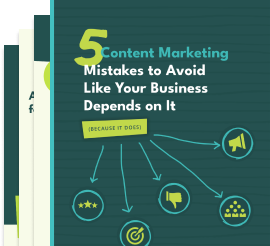In the early days of building my own brand, I would often try and find ways of not having to do some of the work myself. Granted, I wasn’t a business. I didn’t have much in the way of financial resources at the time, and I certainly didn’t have a team of people I was working with. But I still tried to find ways to outsource.
For example, I remember once trying to leverage a relationship with a pair of photographers I knew. I wanted them to take pics for me that I could use as images for my blogs. In exchange, I would, of course, give credit to them and provide a link to their photography website. They were nice and entertained the idea, but ultimately, they didn’t feel the ROI was there for them.
Another example is trying to leverage other people’s IP on social media—ethically of course. Instead of creating something new, I would often try to share their works and piggyback on the content. Add my own caption or assert something on top of what they were saying. I was trying to generate content without having to go thru the creative process every time I needed a social post.
I mean, I could’ve grabbed my phone and taken pics of my own. I was into “iPhoneography” at the time, had all the apps (shoutout to my fave app Hipstamatic), and a little bit of skill. I could’ve sat down on a Sunday evening and created a handful of images or short videos for myself, based on my own IP, and crafted some captions. But I didn’t…
I had a brand-new baby boy at the time, a full-time job managing a corporate chain restaurant…I was busy. I had a lot going on and very little time to do it. Not unlike many business owners and entrepreneurs, right?
Creating Authoritative Content at Scale
Many businesses, especially the ones just starting out, try to outsource their thought leadership too. The actual thought leaders, the people that can create authoritative content, are busy leading the company. They’re out making sales, speaking at conferences, managing the finances, and worrying about the future.
They don’t have a ton of time to devote to content. So, maybe they hire a freelance copywriter off Fiverr to create a white paper or write blogs for them. But often, they end up with something that literally anyone could’ve written. No offense to my copywriters out there, but no matter how good you are with words, if you don’t deeply understand the subject matter, your writing is going to lack substance.
The other trick I see business owners try and pull is leveraging the expertise of their employees to create content. Employees who weren’t hired to do that. It’s not a half-bad idea if the employees are, in fact, experts in the industry, but what’s the incentive for them? Are you paying them more? What do they get out of it?
Alternatively, what’s the incentive for the business owner? Sure, you get some content, but you hired your people to do a certain job, and if they’re creating content, that’s less time they get to spend doing the thing you hired them to do.
The other option is to develop an internal marketing capability, but that takes time to get right. And it still doesn’t ultimately solve the fact that marketers may not be experts in your industry. So, the content still has a good chance of lacking substance, and soon you’ll be posting generic content like everyone else. It’s risky.
And while the intentions are good behind these tactics, the outcomes they generate are often less than desirable.
So, the question should never be, “how do I outsource my expertise?” Rather, it should be, “how do I impart my expertise at scale so that the people around me are empowered to create content on my behalf?”
If you’re not attempting to address the latter, then you’ll never get to a place where you can create authoritative content at scale.

